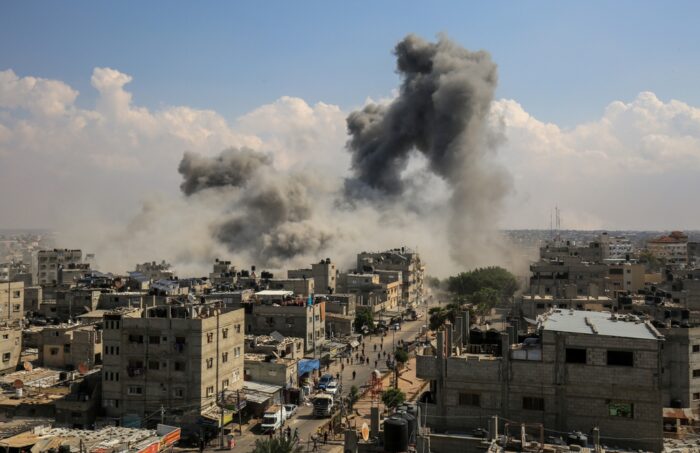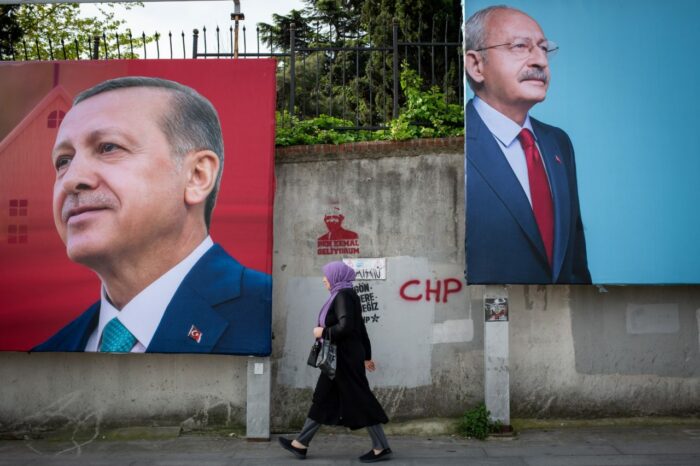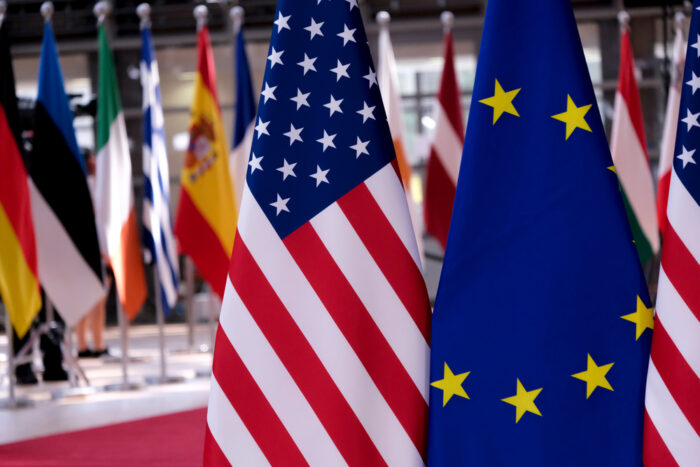The Progressive Post
Turkey in its region: security first and ‘Make Turkey Great Again’

The mass attack by Hamas from the Gaza Strip to Israel, and Israel’s collective revenge-oriented response to it, offers an appropriate and timely case study to re-visit Turkey’s role in ‘the region’ by exposing its real constraints. It shows a certain mindset that when one speaks of ‘the region’, one does not think of the Caucasus, or of the Black Sea nor of the Balkans but inevitably of the Middle East.
Whereas ‘the region’ may well be the Middle East, ‘Turkey’s region’ is not just that. Turkey is both historically and geographically partially in the Middle East, but it is not a Middle Eastern country. What is more, if or when the West is asleep at the wheel or turns its back to the so-called ‘region’, that proverbial ‘region’ invites itself to the party as witnessed in Israel and Gaza. In these situations, Turkey’s geo-political value suddenly comes in handy again. The Republic of Turkey is perhaps the main of the more than 20 inheritors of the defunct Ottoman Empire, but it is still only one of them. Carving out a secular republic and a nation to go with it was a formidable achievement. At the same time, it also meant that Turkey was no longer a global power on a par – at least on paper and in the psyches of its citizens – with the likes of Germany, Britain, France and others, but relegated to the same league as its regional neighbours like Greece, Bulgaria and Serbia.
The young republic’s founding fathers were all tried by steel, blood and fire. Looking back at their immediate past, they primarily took stock of the 1912-1913 Balkan War debacle, and by 1923 they were contemplating their horizons and future almost always with gloom. That sense of constant insecurity by default guided them to put security first at the frontiers and, if need be, to err on the side of caution. The current islamo-nationalist power added a rhetorical ‘Make Turkey Great Again ‘ (MTGA) dimension to that.
The founders had moulded a nation almost at gunpoint and urgently needed breathing room to implement their top-down energetic modernisation project. The Armenians, Greeks and Arabs were by then outside the perimeters, and inside of them, the Kurds would have to adapt to republican citizenship. Furthermore, through various turbulent times, the Kurds would acquire not only a domestic separatist but an outside-in ‘national security threat attribute’ as well. The young republic charted a rationalist foreign and national security course and aimed at anchoring its place in the West, brick upon brick. It signed the Lausanne Treaty in 1923, and the Montreux Convention in 1936, became a founding member of the Council of Europe in 1949 and joined NATO in 1952. It also signed a partnership agreement with the European Economic Community (EEC) in 1963 and was officially accepted as a candidate to the European Union in 2004.
In the meantime, a frontier agreement was concluded with Iran in 1932 to allow a land bridge with Nakhcivan, and Hatay adhered to Turkey in 1939. The Greek Prime Minister Eleftherios Venizelos visited Ankara in 1930, only eight years after the 1922 Turkish-Greek War. The Balkan Pact was signed with Greece, Yugoslavia and Romania in 1934. The so-called Sadabad Pact was signed with Iraq, Iran and Afghanistan in Teheran in 1937. Nevertheless, “bridge over troubled water”, many different events and challenges have elapsed since then. First and foremost, the Cold War came and went in Europe but its ‘siege’ or ‘being on a war footing’ emergency mentality lingered in the minds of Turkey’s decision-makers. In 1960, 1971 and 1980, three military coups happened. Many times more, the military intervened in politics and as a last convulsion, a botched coup attempt was suppressed in 2016.
Today, as we are about to celebrate the 100th anniversary of the Republic on 29 October, a combustible mix of islamism and nationalism has been in power for over 20 years. While the current administration steered well clear from the founding rationalist DNA of the conception of foreign and national security policies summarised above, the mainstream opposition appears equally, if not more, as provincialist and sovereignist in its outlook. The predominant conviction is that Turkey is surrounded not by neighbouring enemies but by world powers encircling it and that ‘strategic autonomy’ is a must.
There is an element of truth to that understanding as well. Russia’s invasion of Ukraine, ISIS’ eruption in Syria and Iraq, Azerbaijan’s re-conquest of Karabakh, Iran’s ambition to become a nuclear power and now Gaza are all some of the challenges just of the present century. Add four million or more Syrian asylum seekers in Turkey and a never-ending war on PKK terror providing the ‘perfect’ excuse for the years-long military presence in Syria and Iraq without an exit strategy, and the picture gets clearer.
Presently, as the modernists needed urgent breathing room at the onset a hundred years ago, the islamo-nationalists equally urgently need breathing room to wiggle away from economic dire straits. Even though rhetoric and action may not always match up, a cooler-headed approach is reflected by negotiation seeking as opposed to muscle flexing. Relations with Greece, the Eastern Mediterranean, the delicate balancing act between Russia and Ukraine, a possible opening to Armenia and, to a lesser extent, even Cyprus are testimonies to that recent plot twist. Yet, Turkey’s perception still remains that PKK terror emanating from rear bases in Iraq and Syria constitutes an existential threat. Ergo, if ‘the region’ is the Middle East, Turkey’s role in it will remain in the foreseeable future martial. The present administration will also continue to cultivate ‘islamist-to-islamist’ ties to supposedly ‘Make Turkey Great Again’ – if not on the ground, at least on the domestic airwaves.
Photo credits: Shutterstock.com/GR.stocks




